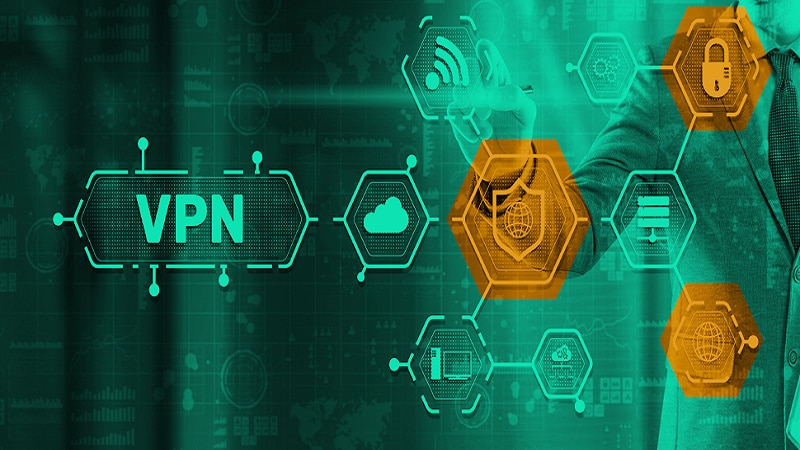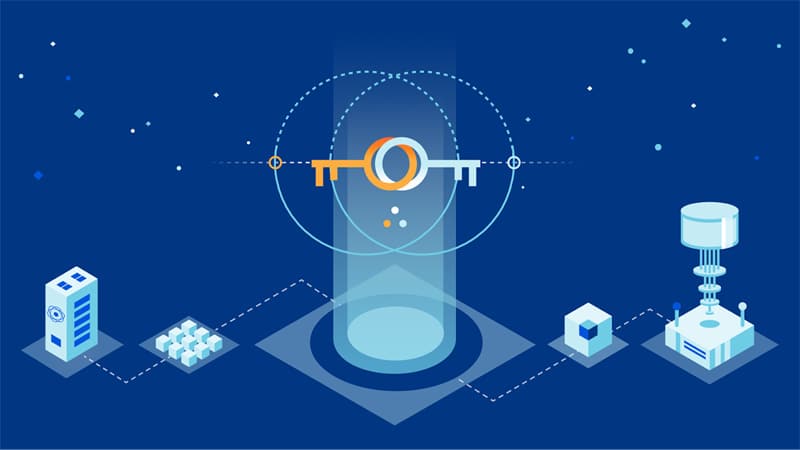
The evolution of Virtual Private Networks (VPNs) has been nothing short of revolutionary in the realm of digital privacy. As our online activities continue to grow, so does the need for advanced technologies that safeguard our personal information from potential threats.
This article explores the latest innovations in VPN technology, unraveling the layers of virtual privacy and the cutting-edge advancements that have shaped the evolution of these crucial tools.
I. Encryption Protocols: The Bedrock of Security

At the heart of VPN evolution lies the constant enhancement of encryption protocols. These protocols establish a secure channel for data transmission between the user's device and the destination server. The latest VPN technologies integrate robust encryption algorithms, such as AES-256, ensuring that even the most sensitive information remains shielded from prying eyes. As cyber threats become more sophisticated, the evolution of encryption protocols is vital to maintaining the integrity of virtual privacy.
II. Multi-Protocol Support: Adapting to Diverse Needs
The latest VPN technologies go beyond single-protocol support, recognizing the diverse needs of users. Providers now offer support for multiple protocols, including OpenVPN, IKEv2/IPsec, and WireGuard, allowing users to choose the protocol that best suits their preferences and security requirements.
This adaptability ensures that VPN users can tailor their virtual privacy experience according to the specific demands of their online activities.
III. Next-Generation Tunneling Technologies
Tunneling is the process by which data is encapsulated and transported securely over the internet. The evolution of VPNs introduces next-generation tunneling technologies that optimize speed, reliability, and security. Protocols like WireGuard are gaining prominence for their efficiency in establishing fast and secure connections, contributing to a more seamless and responsive virtual private network experience.
Check out the Reddit list for the paid VPN that includes exciting features to access restricted files.
IV. Improved User Authentication: Strengthening Access Control
User authentication is a critical aspect of VPN security. The latest technologies focus on strengthening access control through advanced authentication methods. Multi-factor authentication (MFA) and biometric authentication add an extra layer of security, ensuring that only authorized users can access the VPN. These improvements fortify the defenses against unauthorized access attempts, enhancing overall virtual privacy.
V. Dedicated IP Address Options: Balancing Privacy and Functionality
In response to user demand, the latest VPN technologies offer dedicated IP address options. While traditional VPNs use shared IP addresses for anonymity, dedicated IPs provide users with a static, unique address. This feature strikes a balance between privacy and functionality, catering to individuals who require a consistent IP address for specific online activities, such as accessing secure business networks or online banking services.
VI. DNS Leak Protection: Safeguarding Against Information Leaks
Domain Name System (DNS) leaks can compromise user privacy by revealing their online activities. To address this vulnerability, modern VPN technologies incorporate robust DNS leak protection mechanisms. By ensuring that DNS queries are securely routed through the VPN server, these technologies prevent potential leaks and fortify the overall privacy protection offered by VPN services.
VII. Split Tunneling: Customizing Traffic Routes
One of the innovative features in the evolution of VPNs is split tunneling. This technology allows users to customize their traffic routes by choosing which data travels through the VPN and which does not. With split tunneling, users can maintain secure connections for sensitive activities while directly accessing local services, optimizing both security and performance based on their specific needs.
VIII. Stealth and Obfuscation Technologies: Evading Censorship

In regions with strict internet censorship, VPN users face challenges in accessing unrestricted content. The latest VPN technologies incorporate stealth and obfuscation techniques to overcome such obstacles. These technologies disguise VPN traffic as regular internet traffic, making it more challenging for censorship measures to detect and block VPN usage.
This ensures that users can enjoy unrestricted access to information, even in regions with stringent online restrictions.
IX. Enhanced User Interfaces: User-Friendly Experiences
As VPNs become more sophisticated, the evolution extends to user interfaces. Modern VPN providers focus on delivering user-friendly experiences through intuitive interfaces and streamlined setup processes. Clear and accessible settings, along with informative dashboards, contribute to a seamless user experience, making advanced privacy technologies more accessible to a broader audience.
X. Continuous Updates and Security Audits: Staying Ahead of Threats
The commitment to security in the VPN evolution is evident through continuous updates and rigorous security audits. Reputable VPN providers prioritize staying ahead of emerging threats by regularly updating their software and conducting thorough security assessments. This proactive approach ensures that users benefit from the latest security enhancements, reinforcing trust in the evolving landscape of virtual privacy.
Conclusion:
The evolution of Virtual Private Networks signifies a dedicated commitment to advancing tools that effectively safeguard our digital privacy. From robust encryption protocols to the advent of next-generation tunneling technologies, the latest innovations in VPNs provide users with a resilient shield against the multitude of online threats.
As users navigate through an increasingly complex digital landscape, the ongoing evolution of VPN technologies remains crucial. It serves the dual purpose of not only ensuring privacy but also enhancing accessibility and fostering user-friendly experiences.
However, in the quest for VPN providers free, it's vital to exercise caution. Opting for a free VPN service may compromise the desired levels of security and privacy. Therefore, a judicious approach is necessary, involving a thorough assessment of features, encryption protocols, and user policies of any VPN provider. This ensures a delicate balance between cost considerations and the imperative protection of online privacy.
In this era of swift technological advancement, staying well-informed about the latest developments in VPNs is imperative for those intent on maintaining a secure and private online presence. The dynamic nature of technology underscores the importance of continuous vigilance and adaptation to the evolving landscape of virtual privacy.










